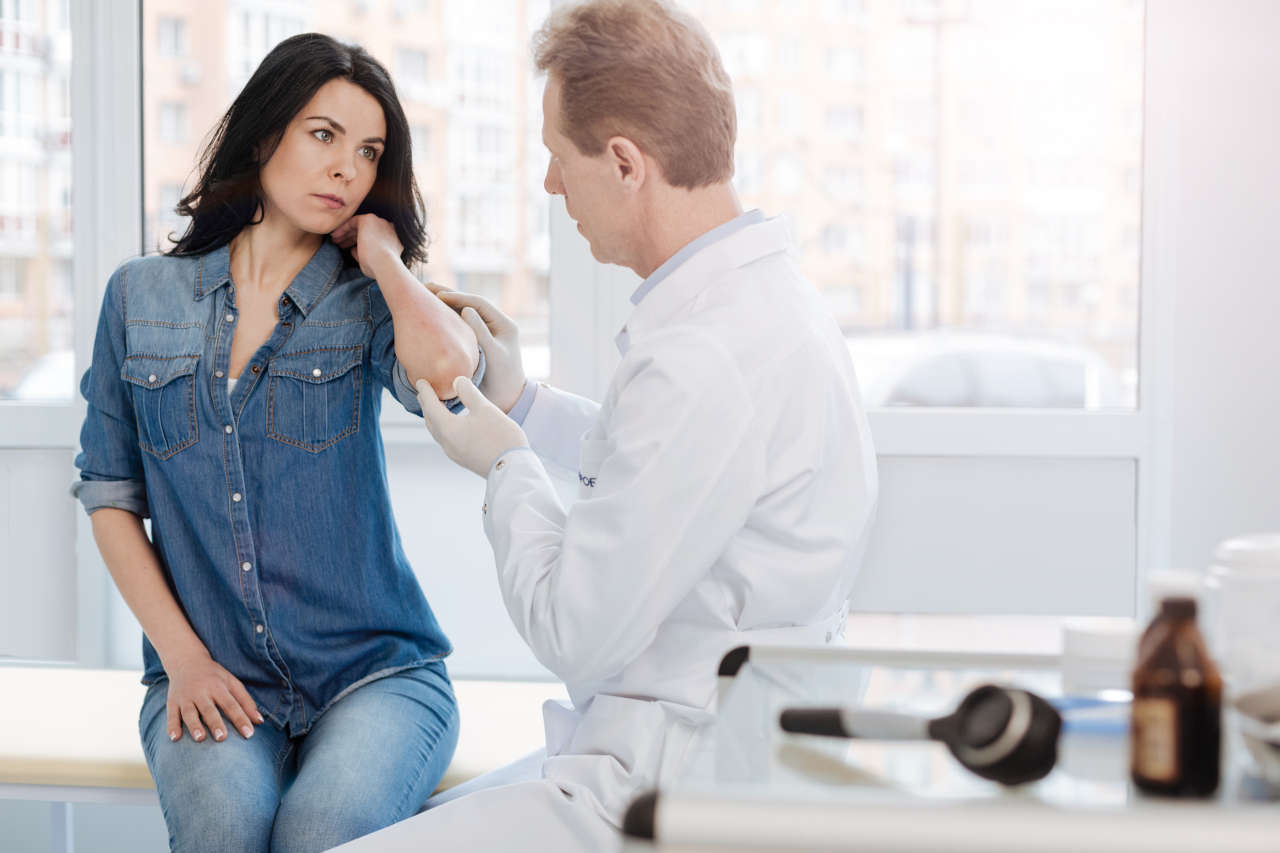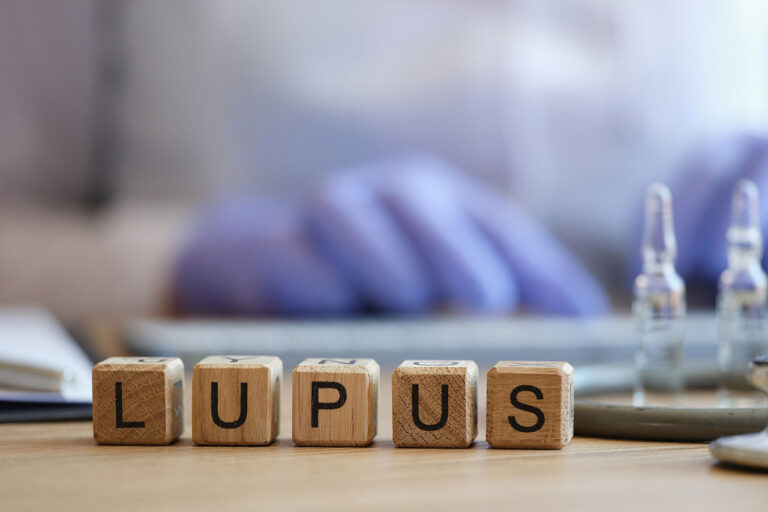
Research has shown that IVIG is a promising treatment option for patients with autoimmune mucocutaneous blistering diseases (AMBDs), a group of conditions that cause painful blisters, sores, and sometimes scarring on the skin or mucous membranes.
Get Your IVIG Dose
At-Home InfusionPreviously, standard therapies like corticosteroids and immunosuppressive agents were used to treat autoimmune mucocutaneous blistering diseases. However, these therapies failed to give satisfactory results due to the serious side effects or opportunistic infections they caused when used long-term.
IVIG therapy has resolved these concerns and emerged as a safer and more effective alternative treatment with fewer and more manageable side effects.
To understand how IVIG can help you, let’s first briefly review what exactly causes autoimmune mucocutaneous blistering diseases.
Autoimmune Mucocutaneous Blistering Diseases: A Brief Overview
Autoimmune mucocutaneous blistering diseases are a rare and potentially fatal group of skin conditions that occur due to immune attacks. In this condition, the immune system that protects you from pathogens starts an immune response against your healthy cells.
In autoimmune blistering diseases, the immune system mistakenly identifies the proteins that hold (glue) the skin and mucous membrane together as foreign material and initiates an immune response against them. The autoantibodies produced during this response attack these proteins and cause blisters and erosions on the skin, mouth, eyes, throat, and other mucosal surfaces.
Categories of Autoimmune Blistering Diseases
The following are the skin conditions or diseases that fall into the category of AMBDs:
1. Pemphigus Vulgaris
This is a potentially fatal mucocutaneous autoimmune disease that causes painful blisters and erosions on the skin and mucous membranes, particularly in the mouth.
2. Bullous Pemphigoid
This condition typically affects older adults and causes large, tense blisters on the skin, often preceded by itching and redness.
3. Mucous Membrane Pemphigoid (MMP)
Also known as cicatricial pemphigoid, this condition primarily affects mucous membranes of the mouth, nose, genitals, and eyes. Scarring due to sores in the eyes can lead to blindness in some patients.
4. Pemphigus Foliaceus
This mild skin condition causes superficial blisters that often start on the face and scalp.
5. Paraneoplastic Pemphigus
This skin condition is a rare and severe form and is often associated with underlying diseases like lymphoma or leukemia.
6. Dermatitis Herpetiformis
Although primarily associated with celiac disease, this condition involves the formation of intensely itchy blisters and small raised spots (papules), typically appearing symmetrically on areas such as the elbows, knees, buttocks, back, or scalp. These skin issues are caused by the deposition of immunoglobulin A (IgA) antibodies in the skin.
Autoimmune blistering diseases are debilitating and can cause pain, difficulty in eating, and even blindness if not properly treated.
Get IVIG Prior Authorization
IVIG and Autoimmune Mucocutaneous Blistering Diseases

IVIG therapy can help patients with autoimmune mucocutaneous blistering diseases by modulating their overactive immune systems. During this therapy, antibodies (prepared from the donated blood plasma) are administered intravenously into the patient’s body.
Though the exact therapeutic effect of IVIG in AMBDs is not clear yet, research reports that it works in several ways:
It Neutralizes the Effects of Autoantibodies
IVIG provides a wide array of antibodies that neutralize the effects of autoantibodies produced by the immune system. These antibodies bind to harmful autoantibodies, prevent them from attacking healthy cells, and reduce disease severity.
It Modulates Immune Response
IVIG has immunomodulatory effects, which means it has the ability to regulate the immune system. IVIG modulates the immune response by suppressing the production of autoantibodies and promoting the expansion of regulatory T cells to keep the immune system in check.
It Reduces Inflammation
IVIG is known for its anti-inflammatory effects that down-regulate the production of cytokines (a signaling protein that drives inflammation). The reduction in inflammation helps to alleviate the swelling, redness, and pain associated with blisters.
It Block Fc Receptors
IVIG inhibits the overt immune response by blocking the Fc receptors on the surface of immune cells such as T, B and dendritic cells.
Fc receptors on immune cells typically help identify and eliminate harmful substances. However, in autoimmune blistering diseases, these receptors mistakenly target the body’s own skin and mucous membranes, treating them as threats. Intravenous immunoglobulin (IVIG) therapy can mitigate this by blocking Fc receptors, preventing such misguided attacks.
Benefits of IVIG Over Conventional Therapies for Autoimmune Mucocutaneous Blistering Diseases
IVIG offers several benefits to patients over conventional therapies. For example:
1. It Is a Safe Alternative With Fewer Side Effects
Compared to conventional therapies, IVIG is generally well-tolerated and causes no or fewer side effects, which are often mild and easily manageable.
A study published in PNAS followed 21 patients with pemphigus vulgaris (PV) over 20 years, all treated with IVIG as their sole therapy. The results showed that 57% of the patients remained relapse-free for two decades, while 29% experienced brief relapses triggered by stress or COVID-19 infection/vaccination but recovered quickly with additional IVIG treatment. Moreover, no severe side effects from IVIG were reported.
The findings suggest that IVIG may help restore the immune system’s balance and offer hope for long-term remission. It also provides valuable insights into how autoimmune blistering diseases like PV can be managed.
Speak to a Specialist
About Copay Assistance2. It Is More Effective Than Conventional Treatments
IVIG is more effective than corticosteroids and immunosuppressive agents. For example, a case report of a 78-year-old woman with AMBDs showed that one week of treatment with IVIG significantly improved her symptoms; blisters and lesions healed faster, and no new lesions appeared.
3. It Improves Quality of Life
IVIG not only clears clinical symptoms over time but also reduces the need for other medications. It also improved the quality of life, with many reported being able to perform daily activities more comfortably after taking IVIG treatment.
When Is IVIG Recommended to Patients With Autoimmune Mucocutaneous Blistering Diseases?
IVIG is typically recommended as an alternative treatment to patients with autoimmune mucocutaneous blistering diseases when:
- Standard therapies like corticosteroids or immunosuppressive agents are refractory or contraindicated.
- Patients fail to respond to standard therapy or show relapses under standard treatment.
- Patients suffer from severe side effects from other medications.
- The patient’s condition is rapidly progressing.
In short, IVIG can be a safe and effective treatment for patients with autoimmune blistering diseases, and those who do not get promising results from conventional therapies can explore IVIG treatment regimens with their healthcare provider.
REFERENCES:
- Segura, S., Iranzo, P., Pablo, I. M. D., Mascaró, J. M., Alsina, M., Herrero, J., & Herrero, C. (2007). High-dose intravenous immunoglobulins for the treatment of autoimmune mucocutaneous blistering diseases: Evaluation of its use in 19 cases. Journal of the American Academy of Dermatology, 56(6), 960-967. https://doi.org/10.1016/j.jaad.2006.06.029
- Li, N., Culton, D., Diaz, L. A., & Liu, Z. (2018). Modes of Action of Intravenous Immunoglobulin in Bullous Pemphigoid. The Journal of Investigative Dermatology, 138(6), 1249. https://doi.org/10.1016/j.jid.2018.02.020
- Arumugham, V. B., & Rayi, A. (2023, July 3). Intravenous immunoglobulin (IVIG). StatPearls – NCBI Bookshelf. https://www.ncbi.nlm.nih.gov/books/NBK554446/
- Ahmed, A. R. (2004). Treatment of autoimmune mucocutaneous blistering diseases with intravenous immunoglobulin therapy. Expert Opinion on Investigational Drugs, 13(8), 1019–1032. https://doi.org/10.1517/13543784.13.8.1019
- Seidling, V., Hoffmann, J., Enk, A., & Hadaschik, E. (2013). Analysis of High-dose Intravenous Immunoglobulin Therapy in 16 Patients with Refractory Autoimmune Blistering Skin Disease: High Efficacy and No Serious Adverse Events. Acta Dermato Venereologica, 93(3), 346–349. https://doi.org/10.2340/00015555-1471
- Valdebran, M., & Amber, K. T. (2017). Coverage of intravenous immunoglobulin for autoimmune blistering diseases among US insurers. JAMA Dermatology, 153(11), 1189. https://doi.org/10.1001/jamadermatol.2017.2614
- Ahmed, A. R., Kalesinskas, M., & Kaveri, S. V. (2024). Restoring immune tolerance in pemphigus vulgaris. Proceedings of the National Academy of Sciences, 121(5), e2317762121. https://doi.org/10.1073/pnas.2317762121
- Kianfar, N., Dasdar, S., Daneshpazhooh, M., Aryanian, Z., & Goodarzi, A. (2023). A systematic review on efficacy, safety and treatment durability of intravenous immunoglobulin in autoimmune bullous dermatoses: Special focus on indication and combination therapy. Experimental Dermatology, 32(7), 934-944. https://doi.org/10.1111/exd.14829
- Spałek, M. M., & Dmochowski, M. (2023). Intravenous Immunoglobulin for Autoimmune Bullous Diseases: A Case Series from a Central European Referral Center. Medicina, 59(7), 1265. https://doi.org/10.3390/medicina59071265












